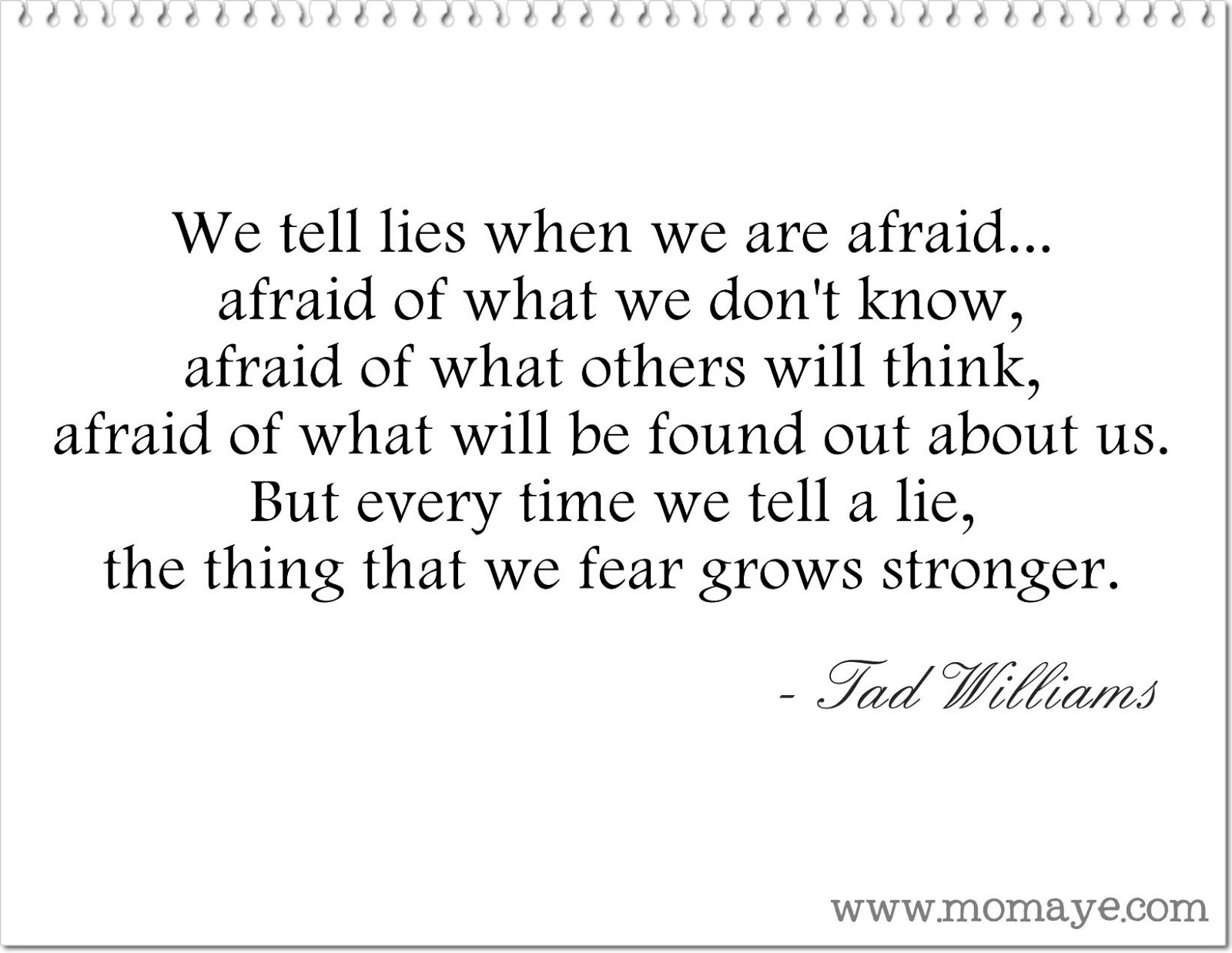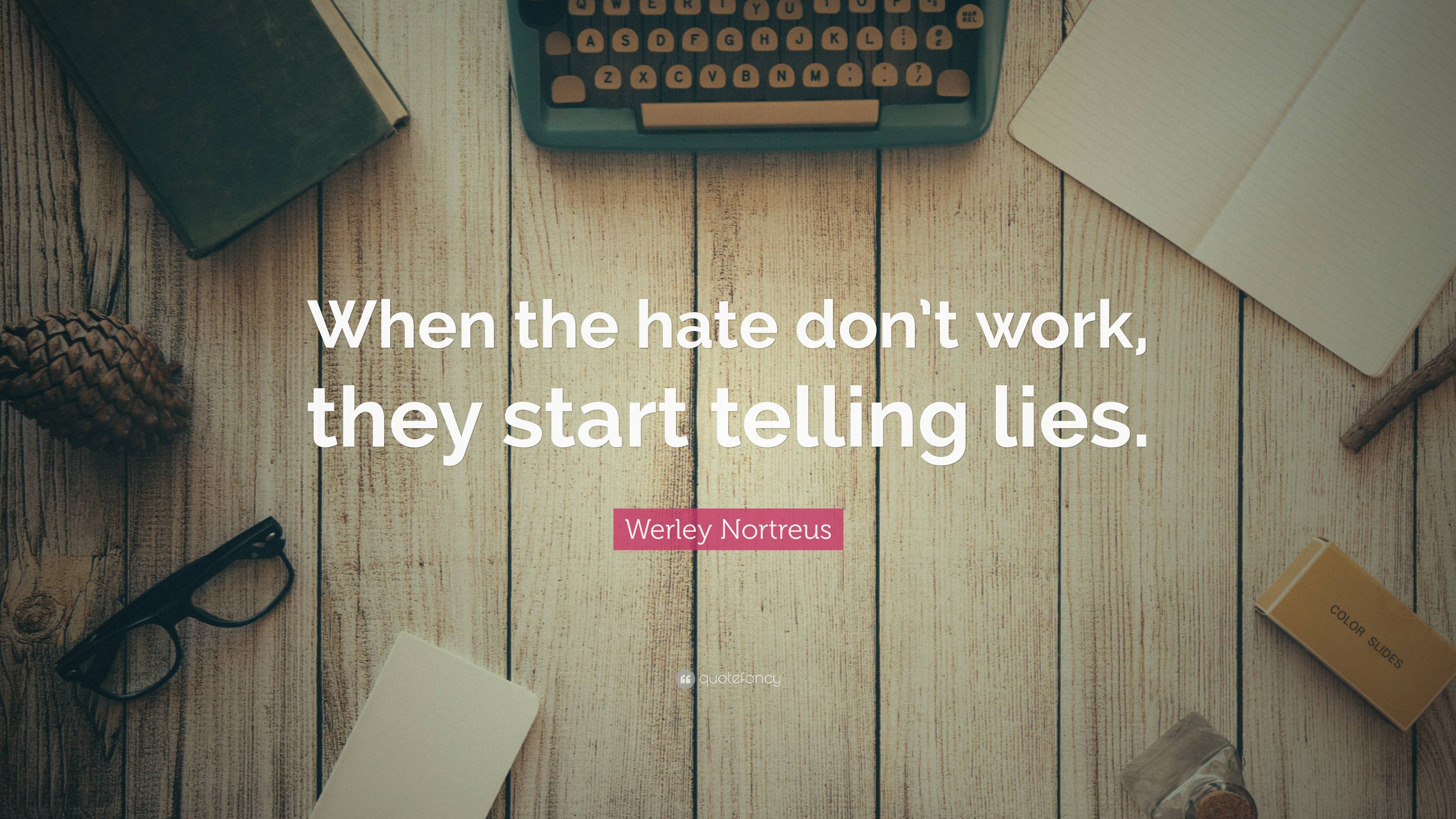Deception is a powerful tool used by individuals to manipulate and control others, and when hate doesn't achieve its intended purpose, lies often become the next weapon of choice. Understanding the psychology behind this behavior is crucial for personal growth and societal harmony. In a world where misinformation spreads rapidly, it's essential to recognize the patterns and motivations behind such actions.
Throughout history, we have witnessed how lies have been employed to discredit opponents, manipulate public opinion, and serve personal agendas. This article delves into the reasons why people resort to falsehoods when hate alone fails to achieve its objectives. By analyzing real-world examples and expert insights, we aim to equip you with the knowledge to identify and counteract this destructive behavior.
This exploration into "when the hate don't work, they start telling lies quotes" will not only provide you with a deeper understanding of human psychology but also offer practical advice on how to navigate a world filled with misinformation. Let's dive into the complexities of this phenomenon and uncover its implications for individuals and society as a whole.
Read also:Luke Hemmings Twitter A Comprehensive Guide To His Social Media Presence
Table of Contents
- The Psychology of Hate and Its Limits
- Why Lies Become a Tool When Hate Fails
- Famous Quotes About Lies and Deception
- The Impact of Lies on Society
- How Individuals Respond to Lies
- Case Studies: Real-Life Examples of Lies in Action
- The Role of Media in Spreading Lies
- The Importance of Critical Thinking
- How to Combat Lies Effectively
- Conclusion and Call to Action
The Psychology of Hate and Its Limits
Hate is a powerful emotion that can drive individuals and groups to extreme actions. However, as much as hate can incite fear and division, it often lacks the subtlety needed to manipulate public perception effectively. When hate alone doesn't achieve the desired results, individuals may turn to lies as a more strategic approach.
Research by psychologists suggests that hate stems from deep-seated fears, insecurities, and a need for control. While hate can create chaos and confusion, it often lacks the ability to shape long-term narratives. This is where lies step in, providing a more calculated method of influence.
Why Lies Become a Tool When Hate Fails
When hate doesn't work, lies become the next weapon of choice because they offer a way to distort reality while maintaining an appearance of truth. Lies can be tailored to fit specific audiences, making them more effective in swaying opinions.
Key reasons why lies are used:
- Lies can create doubt where none existed before.
- They exploit cognitive biases, making it easier for people to believe falsehoods.
- Lies can be spread quickly through modern communication channels, reaching a wider audience.
According to a study published in the journal "Psychology Today," lies are more likely to be believed when they align with pre-existing beliefs or fears of the audience.
Famous Quotes About Lies and Deception
Throughout history, thinkers and leaders have grappled with the concept of lies and deception. Here are some famous quotes that shed light on the subject:
Read also:Nick Kostos Twitter The Story Of Influence And Strategy
- "The truth is heavy and hard to carry, but lies are just as hard to hide." — African Proverb
- "A lie gets halfway around the world before the truth has a chance to get its pants on." — Winston Churchill
- "Deceit is the worst form of betrayal." — Unknown
These quotes highlight the dangers of lies and the importance of truth in maintaining trust and integrity.
The Impact of Lies on Society
The proliferation of lies in society has far-reaching consequences. From political discourse to personal relationships, falsehoods can erode trust and create divisions. Sociologists argue that the spread of misinformation can lead to:
- Increased polarization and social unrest.
- Decreased civic engagement and trust in institutions.
- Damage to personal relationships and community cohesion.
A report by the Pew Research Center found that 64% of Americans believe that fabricated news stories cause confusion about the basic facts of current events.
How Individuals Respond to Lies
People react differently to lies, depending on their level of awareness and critical thinking skills. Some may fall victim to misinformation, while others actively seek out the truth. Here are common responses:
- Belief: Individuals may accept lies as truth, especially if they align with their worldview.
- Skepticism: Others may question the veracity of information but lack the tools to verify it.
- Investigation: A smaller group actively seeks out evidence to confirm or refute claims.
Developing critical thinking skills is essential for navigating a world filled with misinformation. Educational institutions and community organizations play a vital role in promoting media literacy.
Case Studies: Real-Life Examples of Lies in Action
The Role of Media in Spreading Lies
Media outlets, both traditional and digital, have a significant impact on the spread of lies. Sensational headlines and clickbait articles often prioritize engagement over accuracy, contributing to the dissemination of falsehoods.
For example, during the 2016 U.S. presidential election, numerous false stories were shared on social media platforms, influencing public opinion and voter behavior. According to a study by Stanford University, these false stories were shared millions of times, often outperforming legitimate news sources in terms of reach.
The Importance of Critical Thinking
Critical thinking is the key to identifying and combating lies. By analyzing information objectively and seeking out multiple sources, individuals can better discern truth from falsehood.
Experts recommend the following strategies for improving critical thinking:
- Evaluate the credibility of sources.
- Look for corroborating evidence.
- Consider alternative perspectives.
Organizations like the International Center for Media & the Public Agenda (ICMPA) offer resources and training to help individuals develop these essential skills.
How to Combat Lies Effectively
Fighting lies requires a multi-faceted approach that involves education, technology, and community engagement. Here are some effective strategies:
- Encourage media literacy programs in schools and communities.
- Support fact-checking organizations that verify the accuracy of information.
- Hold media outlets accountable for spreading misinformation.
Collaboration between governments, tech companies, and civil society is essential for creating a more informed and resilient society.
Conclusion and Call to Action
In conclusion, understanding the phenomenon of "when the hate don't work, they start telling lies quotes" is crucial for navigating a world filled with misinformation. By recognizing the psychology behind lies and developing critical thinking skills, we can better protect ourselves and our communities from the destructive effects of falsehoods.
We invite you to take action by sharing this article with others and engaging in discussions about the importance of truth and integrity. Together, we can create a more informed and harmonious society. For further reading, explore our related articles on media literacy and critical thinking.


